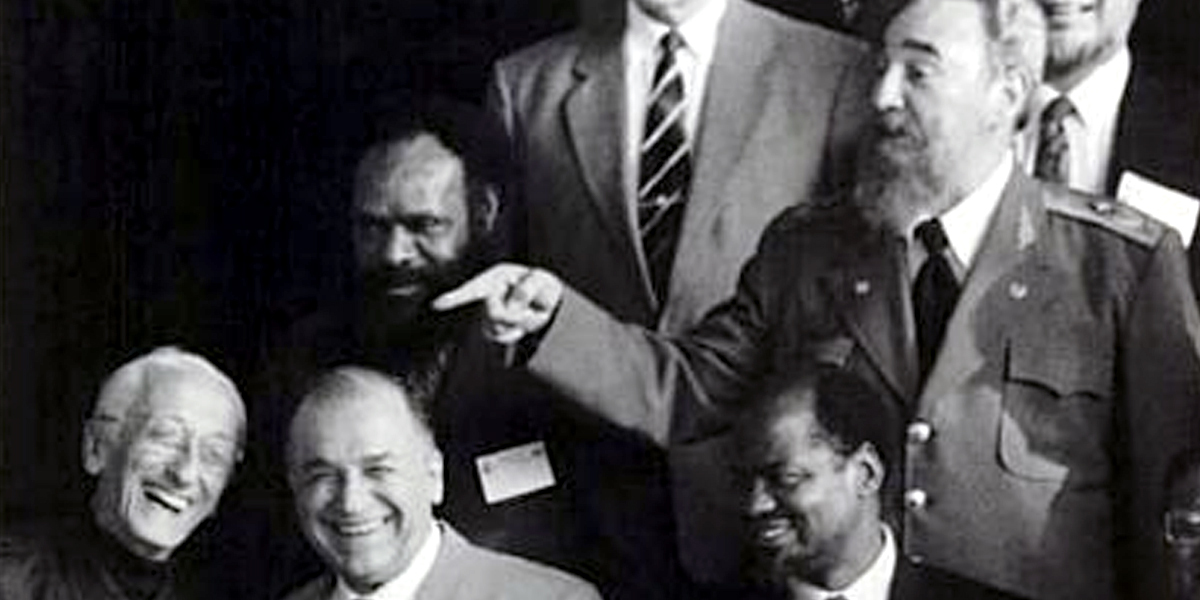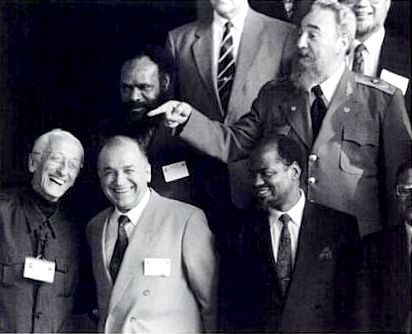

Our captain watched with some consternation as an unidentified vessel, gray with no markings, headed straight toward our vessel, anchored more than 50 miles off Cuba’s southern coast. Others in the crew speculated nervously about the approaching boat, never previously seen in these parts. The boat pulled alongside and two imposing figures boarded, both in olive military uniforms. A mustachioed representative of the Ministry of Interior stood beside his taller colleague whose uniform, like the boat that carried him, bore no markings at all. A sidearm hung imposingly from his belt. He turned to the captain and requested to meet with Robert F. Kennedy, Jr.

At that moment, Kennedy—a leading environmental activist, president of Waterkeeper Alliance and son of the late Senator Robert F. Kennedy—was 90 feet below the surface with the rest of our group, observing a dozen or so Caribbean reef sharks tracing mesmerizing circles about us. We were carrying the flag of The Explorers Club, visiting and documenting previously unexplored coral reef ecosystems in Cuba’s southern waters.
https://twitter.com/EcoWatch/statuses/522734020518375424 up with me, and say, ‘Captain, join this picture in the ‘photo op’ because most people here know nothing about the environment. And he came up and was in the ‘photo op’ with all of us.”

In July 1997, Cuba enacted Law 81, the Law of the Environment, a truly impressive set of laws and regulations meant to reverse the environmental damage from prior decades and chart a path of sustainability. Within a decade, Cuba banned the destructive fishing practice of bottom trawling from its waters. Today, Cuba has nearly met its goal of protecting 25 percent of its marine waters in marine protected areas, one of the largest percentages in the world. (In comparison, the world average is currently 2-3 percent). Many Cubans attribute Law 81 and Cuba’s ongoing commitment to the environment to Castro’s environmental ethic, which the Comandante, in part, attributes to Cousteau.
With the passing of Castro and a possible retreat on Cuba relations by an incoming Trump Administration, there is a growing uneasiness about Cuba’s uncertain future. Facing profound economic need and unprecedented growth pressure, especially in response to plans more than triple tourism by 2030, Cuba will be put to the test in the months and years ahead. For now, Cuba remains a green, unspoiled jewel in the Caribbean. It is a place where policy is still informed by science and fact, and decisions governed by its laws.
By 2014, it had been some time since Castro had last donned a mask and personally explored Cuba’s waters, but it was clear that his passion and curiosity for the sea was as strong as ever. In his letter, Castro made a simple but urgent request of Kennedy, Jr: “Today, I beg you, if you have a few minutes, tell me about the general impression of what you have seen on the bottom…” Several weeks later, Kennedy complied and assured the Comandante that for now, Cuba’s marine ecosystems were still healthy and spectacular.

 233k
233k  41k
41k  Subscribe
Subscribe 